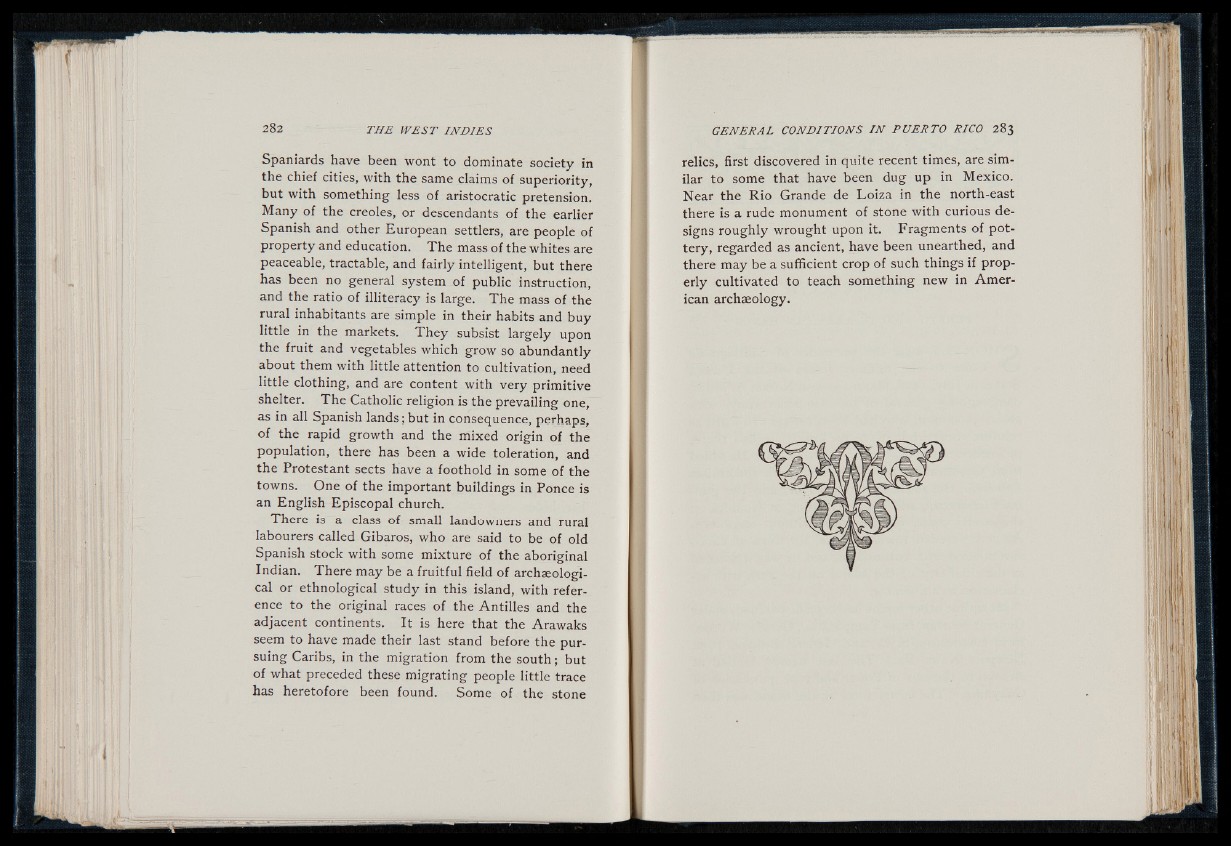
Spaniards have been wont to dominate society in
the chief cities, with the same claims of superiority,
but with something less of aristocratic pretension.
Many of the creoles, or descendants of the earlier
Spanish and other European settlers, are people of
property and education. T he mass of the whites are
peaceable, tractable, and fairly intelligent, but there
has been no general system of public instruction,
and the ratio of illiteracy is large. The mass of the
rural inhabitants are simple in their habits and buy
little in the markets. T hey subsist largely upon
the fruit and vegetables which grow so abundantly
about them with little attention to cultivation, need
little clothing, and are content with very primitive
shelter. T h e Catholic religion is the prevailing one,
as in all Spanish lands; but in consequence, perhaps,
of the rapid growth and the mixed origin of the
population, there has been a wide toleration, and
the Protestant sects have a foothold in some of the
towns. One of the important buildings in Ponce is
an English Episcopal church.
There is a class of small landowners and rural
labourers called Gibaros, who are said to be of old
Spanish stock with some mixture of the aboriginal
Indian. There may be a fruitful field of archaeological
or ethnological study in this island, with reference
to the original races of the Antilles and the
adjacent continents. It is here that the Arawaks
seem to have made their last stand before the pursuing
Caribs, in the migration from the so u th ; but
of what preceded these migrating people little trace
has heretofore been found. Some of the stone
relics, first discovered in quite recent times, are similar
to some that have been dug up in Mexico.
Near the Rio Grande de Loiza in the north-east
there is a rude monument of stone with curious designs
roughly wrought upon it. Fragments of pottery,
regarded as ancient, have been unearthed, and
there may be a sufficient crop of such things if properly
cultivated to teach something new in American
archaeology.